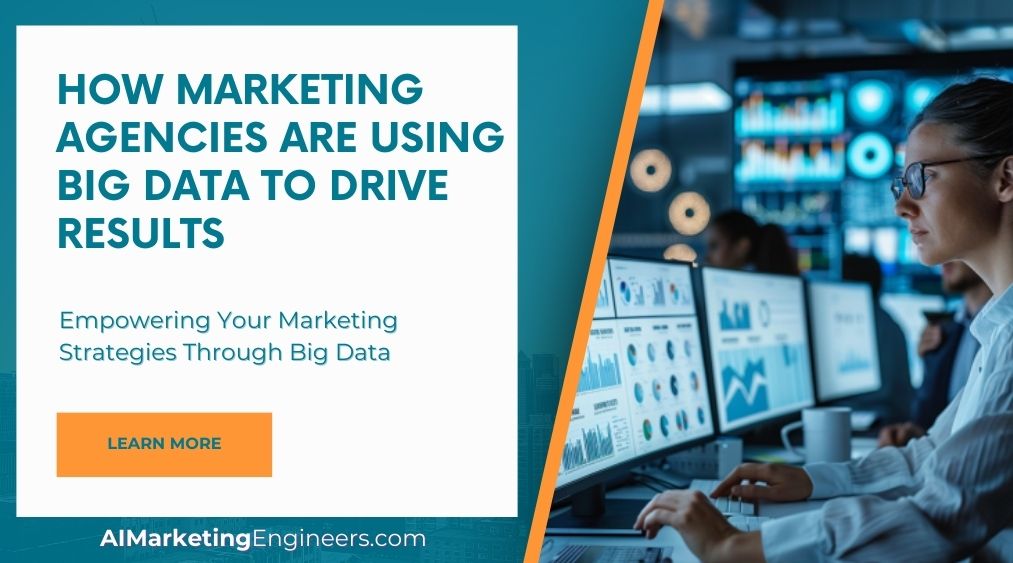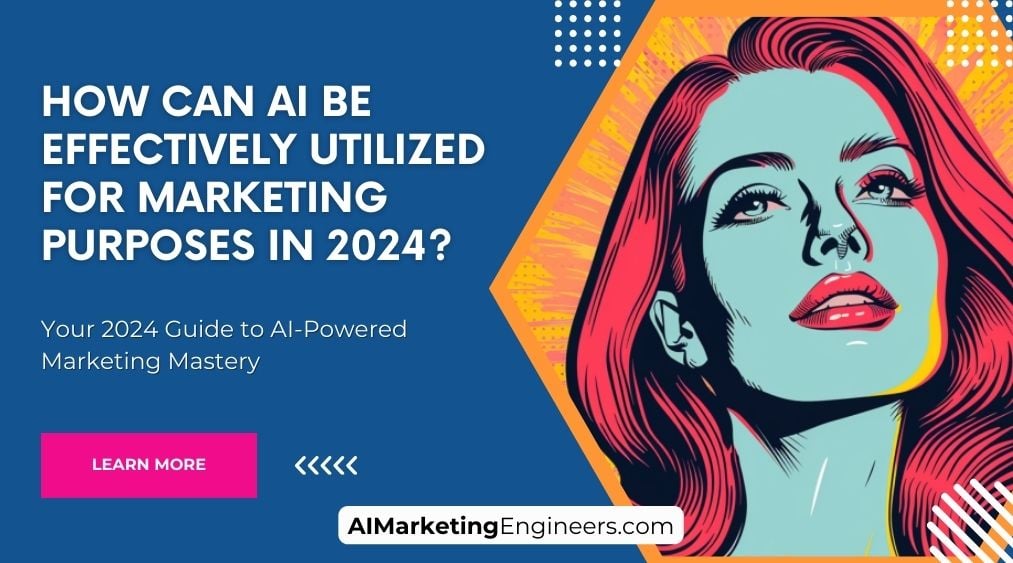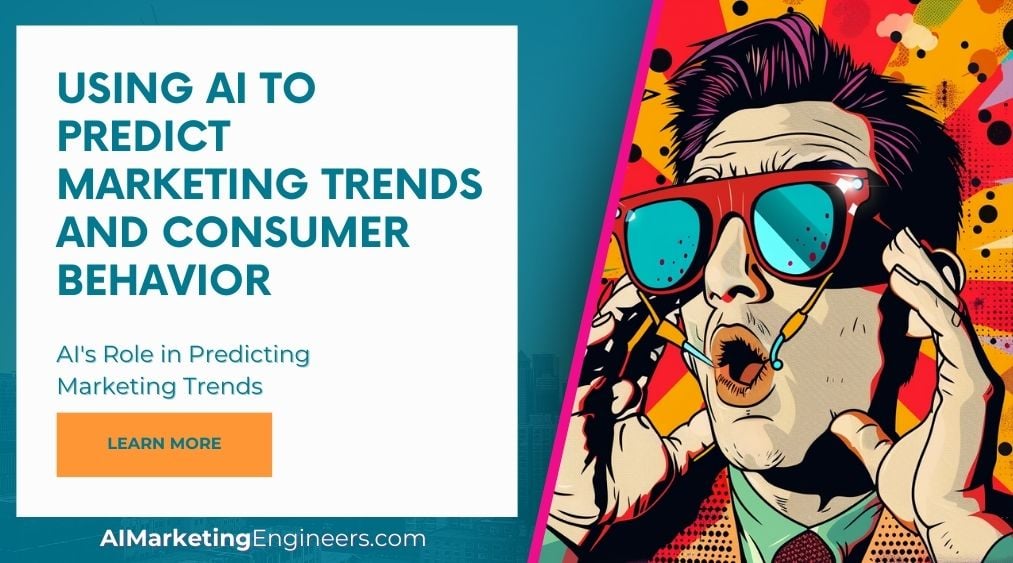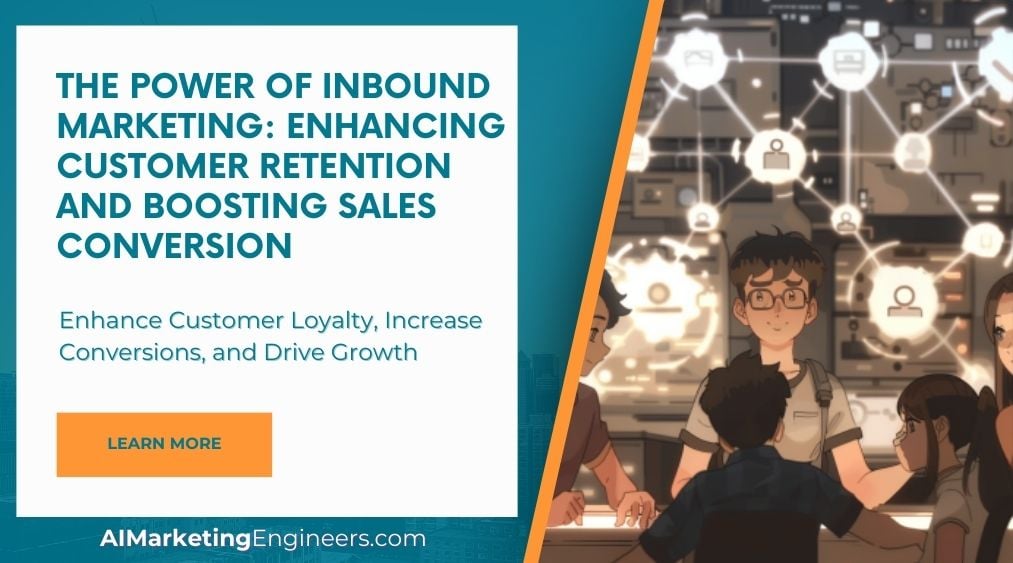Key Takeaways
✅ Personalization and Targeting: Marketing agencies are leveraging big data to create highly targeted and personalized campaigns. By analyzing customer demographics, preferences, and pain points, agencies can tailor their marketing efforts to resonate with specific audience segments, increasing the likelihood of conversion and customer loyalty. For example, implementing segmented email campaigns can yield a 29% higher open rate.
✅ Data-Driven Decision Making: Agencies use big data to inform their marketing strategies, making decisions based on concrete data rather than intuition. This includes analyzing customer behavior, tracking campaign performance, and identifying areas for improvement. By doing so, agencies can optimize their campaigns, streamline workflows, and boost customer engagement. For instance, 64% of marketing executives "strongly agree" that data-driven decisions are more effective.
✅ Real-Time Insights and Optimization: Big data enables agencies to gain real-time insights into customer behavior and campaign performance. This allows for quick adjustments to maximize ROI. Additionally, agencies can use big data to create detailed buyer personas, conduct market research, and analyze customer feedback to refine marketing strategies. Real-time data usage can boost marketing efficiency by up to 78%.
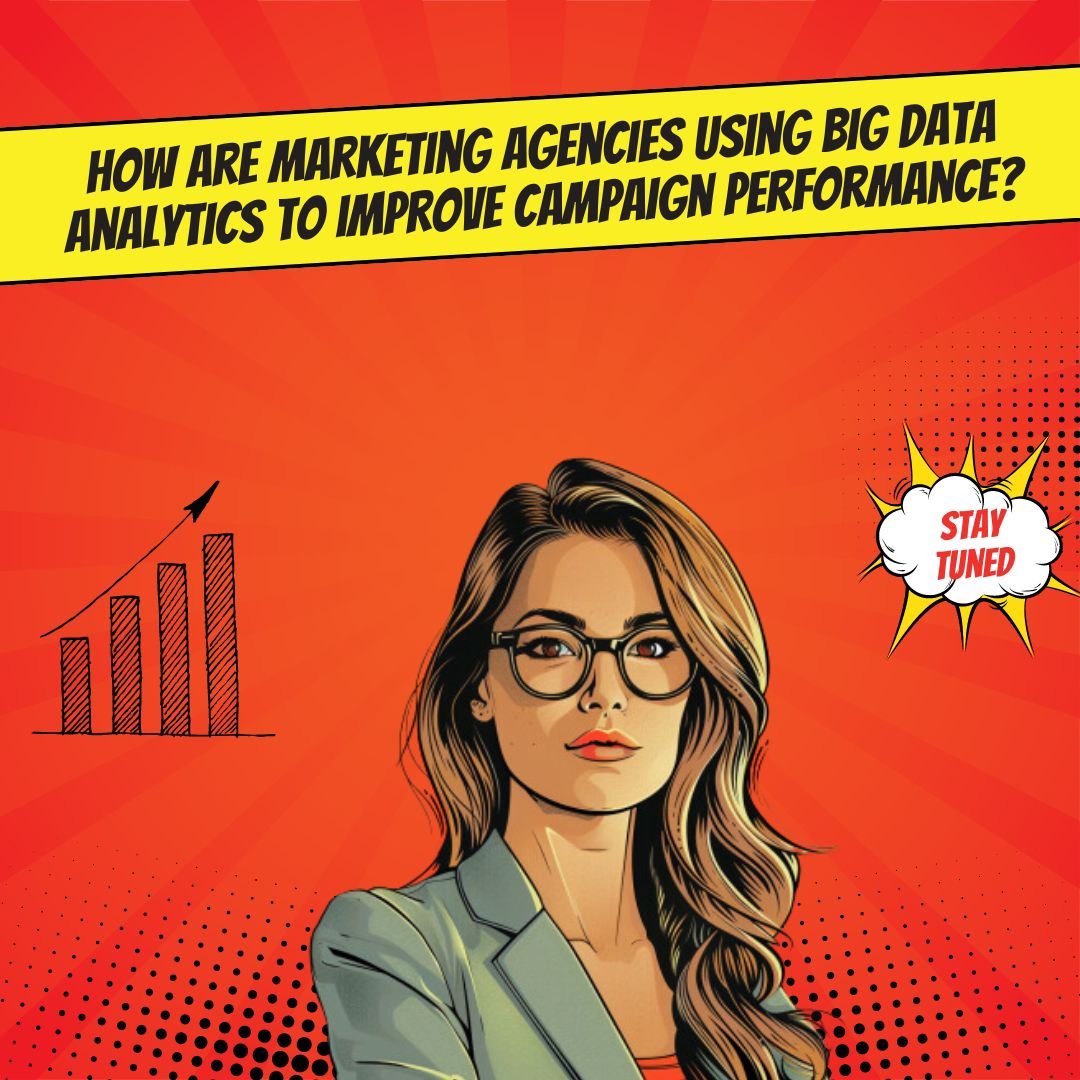
Introduction
Is your marketing strategy still operating on gut feelings? In today's competitive marketplace, big data has become a crucial asset for marketing agencies aiming to gain a competitive edge. By understanding customer behaviors and industry trends through data analytics, agencies can personalize campaigns, make data-driven decisions, and gain real-time insights to maximize their ROI. This article dives deep into how agencies are harnessing the power of big data to not only optimize their strategies but also build lasting customer relationships. Prepare to uncover actionable insights and groundbreaking techniques that could redefine your approach to marketing.
Top Statistics
| Statistic | Insight |
|---|---|
| 97.2% of businesses are actively investing in big data and AI. | This significant percentage shows how crucial big data and AI have become in modern business strategies, pushing companies to innovate and stay competitive. |
| The big data analytics market is expected to grow from $104.19 billion in 2023 to $118.55 billion in 2024 at a compound annual growth rate of 13.8%. | This rapid market growth indicates a thriving industry, suggesting that it’s a prime time for businesses to leverage big data analytics for enhanced decision-making. |
| 98% of executives agree it is somewhat or very important to increase data analysis by their organizations in the next 1 to 3 years. | Executives recognize the need to focus on data analysis, as it plays a crucial role in competitive advantage and organizational growth. |
| 4 out of 10 companies use big data analytics. | This usage rate reflects a substantial adoption of big data tools across industries, highlighting its effectiveness in generating actionable insights. |
| 82% of organizations with advanced maturity in data and analytics saw positive year-over-year (YOY) revenue growth over the past three years. | This statistic demonstrates that companies investing in advanced analytics are reaping tangible financial benefits, making a strong case for further investment. |
Customer Engagement and Retention
Big data helps marketers understand customer demographics, locations, and interests, enabling personalized product experiences and increased customer loyalty. For example, Attain uses commerce data to provide real-time insights for targeted ad campaigns, while BlueConic’s customer data platform offers a single view of the customer, enhancing personal experiences. By using these data-driven approaches, agencies can tap into specific customer needs, leading to higher satisfaction and repeat business. How effective are your current engagement strategies in making customers feel valued and understood?
Marketing Optimization and Performance
Big data solutions help organize data and identify which marketing campaigns, strategies, or social channels are most effective. This allows marketers to allocate resources efficiently and reduce costs for underperforming projects. System1’s marketing technology platform, for instance, uses data science, AI, and machine learning to match consumer demand with suitable verticals for conversion. Are you utilizing data to assess and redefine your marketing efforts? The numbers show that companies who rely on data-driven marketing are six times more likely to be profitable year-over-year.

Competitor Tracking and Operational Adjustment
Big data enables marketers to compare prices and marketing trends among competitors, adjusting product prices, logistics, and operations to remain competitive. Enigma uses AI to analyze big data, providing insights on financial health and behavior in private small and medium-sized businesses, which are then used to drive growth throughout the B2B customer lifecycle. How are you leveraging competitive intelligence to make informed operational adjustments? Staying ahead often means having the clearest view of both market opportunities and competitor threats.
Real-Time Insights and Dynamic Decision-Making
Big data allows for real-time analysis, enabling marketers to make data-driven decisions quickly. Centerfield develops intelligent big data-driven marketing, utilizing real-time biddable media, automated call routing, and customized scripting to deliver new customers at scale. Can your organization pivot as fast as the market changes? Immediate access to real-time insights means the difference between seizing opportunities and falling behind.
The Future of Big Data in Marketing
As data continues to grow, marketing agencies will need to adapt and innovate their strategies to effectively utilize big data. This includes integrating AI, machine learning, and other advanced technologies to stay ahead in the competitive marketing landscape. The future lies in systems that not only understand but predict consumer behavior, providing a huge edge in crafting campaigns that resonate deeply. Is your agency ready for the next leap in data-centric marketing? Adaptation and foresight will be key to staying relevant and effective.

AI Marketing Engineers Recommendation
Recommendation 1: Embrace Predictive Analytics for Enhanced Decision-Making: Marketing agencies are harnessing big data to drive forward-thinking tactics. Predictive analytics, which involves using historical data to predict future outcomes, is gaining traction. According to a recent report by Market Research Future, the predictive analytics market is projected to reach USD 35.45 billion by 2025, growing at a CAGR of 21.2%. By integrating predictive analytics tools, agencies can forecast trends, tailor campaigns more precisely, and allocate budgets more efficiently. This reduces guesswork and maximizes return on investment (ROI).
Recommendation 2: Personalize Customer Experience Through Advanced Segmentation: A key trend in the use of big data is enhanced customer segmentation. Advanced segmentation enables agencies to categorize customers into more specific groups based on behavior, preferences, and demographics. According to Salesforce, 72% of consumers expect companies to understand their needs and expectations. By leveraging big data for in-depth segmentation, agencies can create highly personalized marketing messages, improving engagement rates and customer loyalty. This strategic approach helps businesses remain competitive in a crowded market.
Recommendation 3: Utilize Real-Time Analytics for Immediate Campaign Adjustments: Real-time analytics is revolutionizing how marketing agencies utilize big data to refine their strategies on the fly. Tools like Google Analytics 360 and Adobe Analytics provide real-time data, allowing marketers to track performance and make immediate adjustments. According to a report by Statista, the global big data analytics market is expected to grow to $103 billion by 2023. Implementing real-time analytics enables businesses to react quickly to market changes, optimize ad spend in real time, and enhance the overall effectiveness of marketing campaigns.
Relevant Links
- Unlock the Secrets of Market Penetration
- Boost Your Marketing with Personalized Campaigns
- The Power of Targeted Audience Selection
- Achieve Higher Conversions with Real-Time Data Insights
Conclusion
In today's rapidly evolving marketing landscape, big data has become an indispensable asset for marketing agencies. By leveraging real-time insights and dynamic decision-making, agencies can craft personalized experiences that resonate with customers and foster loyalty. Companies like Attain and BlueConic demonstrate the power of big data in understanding customer demographics and preferences. Additionally, marketing optimization technologies, such as those employed by System1, help streamline resources and enhance campaign effectiveness. Competitor tracking, exemplified by companies like Enigma, underscores big data's role in maintaining a competitive edge through smart operational adjustments. As data continues to expand, the integration of AI and machine learning will be crucial for agencies aiming to stay ahead. The future promises even more sophisticated uses of big data, urging marketers to adapt and innovate continuously. The message is clear: those who harness the full potential of big data will drive results and shape the future of marketing.

FAQs
Question 1: What is Big Data?
Answer: Big Data refers to large and complex datasets that cannot be effectively analyzed using traditional systems and processes. It includes structured, semi-structured, and unstructured data from various sources, such as social media, IoT devices, and business transactions.
Question 2: What are the Five V's of Big Data?
Answer: The Five V's are:
- Volume: The large amount of data generated at a high rate.
- Velocity: The speed at which data grows.
- Variety: The different types of data formats (e.g., text, audio, video).
- Veracity: The uncertainty or inconsistency of available data.
- Value: Turning data into meaningful insights and revenue.
Question 2: How Do Marketers Leverage Big Data?
Answer: Marketers use big data to gain insights into customer behavior, preferences, and buying patterns. This helps them develop targeted marketing campaigns, personalize customer experiences, and optimize operations.
Question 4: What Are the Challenges of Using Big Data in Marketing?
Answer: Challenges include:
- Time disparities in data systems.
- Streaming data sources.
- Cross-departmental collaboration.
- Prioritizing quality over quantity of data.
- Choosing the right analytics approach.
- Translating insights into actionable strategies.
Question 5: What Role Does Predictive Modeling Play in Big Data Marketing?
Answer: Predictive modeling is used to forecast customer behavior, identify trends, and optimize marketing strategies. It involves using algorithms to analyze large datasets and make predictions about future outcomes.
Question 6: How Can Marketers Ensure Effective Use of Big Data?
Answer: Ensure effective use by:
- Asking the right questions about customer behavior.
- Prioritizing data quality.
- Implementing a collaborative mindset across departments.
- Using advanced analytics tools.
- Continuously experimenting and adapting strategies.
Question 7: What Skills Are Required for a Big Data Marketer?
Answer: Required skills include:
- Data analysis and interpretation.
- Knowledge of advanced analytics tools.
- Understanding of customer behavior and market trends.
- Ability to communicate insights effectively.
- Collaboration and project management skills.
Question 8: How Can Marketers Measure the Success of Big Data Initiatives?
Answer: Measure success by:
- Tracking key performance indicators (KPIs) such as conversion rates and customer engagement.
- Monitoring return on investment (ROI).
- Conducting regular data quality checks.
- Continuously evaluating and refining strategies.

Academic References
- SAS Institute. Big Data Marketing: What it is and why it matters. This article highlights the importance of big data in marketing, emphasizing its role in customer engagement, retention, and marketing optimization. It also discusses the challenges of using big data effectively and provides steps for leveraging it to improve marketing strategies.
- American Express. Benefits of Big Data in Creating a Digital Marketing Strategy. This article explores the benefits of big data in digital marketing, including audience segmentation, sentiment analysis, targeted marketing, predictive and prescriptive analysis, and result measurement. It emphasizes the importance of leveraging big data insights to create more effective and targeted marketing strategies.
- Built In. What Is Big Data in Marketing? 24 Examples. This article provides an overview of how big data is used in marketing, including customer engagement and retention, marketing optimization, and competitor tracking. It also lists 24 examples of companies using big data effectively in their marketing strategies.
- The Manifest. The Best Big Data Marketing Companies. This list provides an overview of top big data marketing companies, including their services, clients, and notable projects. It serves as a resource for businesses looking to partner with experts in big data marketing.
- Clutch. Top Big Data Marketing Companies. This list features a diverse selection of companies specializing in marketing analytics, including their ratings, reviews, and industry expertise. It helps businesses find the right partner for their big data marketing needs.
